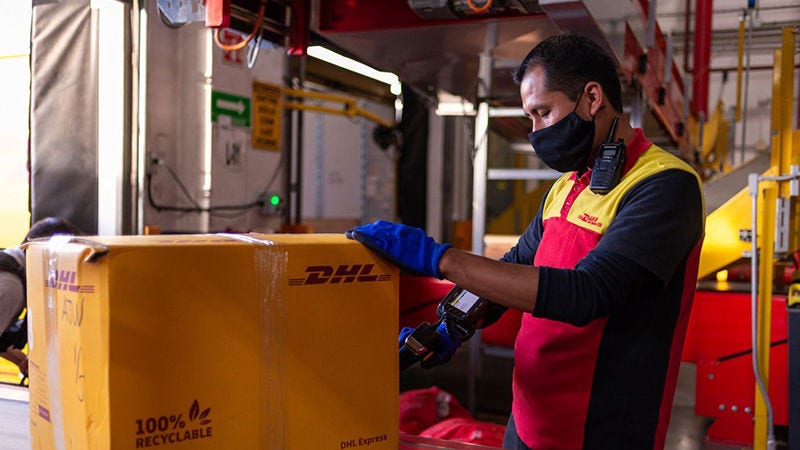
Stuck in customs? Tips to avoid customs clearance issues in Indonesia
Indonesia's e-commerce businesses often face a costly and frustrating challenge: delays at customs. Whether it's due to missing documentation or incorrect item descriptions, customs clearance issues can result in significant setbacks, unexpected fees, and frustrated customers.
This guide covers what causes shipping delays and how you can speed up customs clearance by implementing practical strategies to expedite customs clearance, ensuring faster delivery, improved customer satisfaction, and cost savings.
1. Understanding Indonesian customs: Key requirements
Understanding Indonesia's customs regulations is essential for ensuring the smooth processing of international shipments. Key compliance factors include:
- Value-added tax (VAT) on digital goods and services: As of January 1, 2025, Indonesia imposes a 11% VAT on imported goods and services as well as a 12% VAT on luxury goods.1
- Import duty exemption threshold: For e-commerce shipments, Indonesia offers a duty exemption for goods valued up to US$3 per day per consignee. Shipments exceeding this value are subject to import duties and taxes.2
- Mandatory data sharing for e-commerce platforms: E-commerce firms importing more than 1,000 packages annually are required to share detailed import data with the Directorate General of Customs and Excise.3 This includes information such as the seller's identity, goods description, specifications, quantity, price, and electronic invoices.
Adhering to these regulations helps prevent customs delays and unexpected costs, while ensuring compliance with Indonesian laws.
Moreover, don't assume that customs rules are consistent worldwide. Each country has its own customs regulations, which can vary significantly. Making assumptions based on experiences with one country can lead to mistakes and hold-ups in another. For instance, Indonesia has specific requirements for e-commerce platforms and digital goods taxation that may differ from other nations. Always verify the specific regulations for each destination to avoid compliance issues during customs clearance.
By staying informed and compliant with Indonesian customs regulations, businesses can streamline their shipping processes, reduce delays, and enhance customer satisfaction.
2. Preparing shipping documents
It is important to have the shipping documents ready to avoid delay and for a smooth customs clearance process. Make sure to prepare and include all required documents, such as:
- Commercial Invoices: This document must detail the buyer and seller's information, a precise description of each item, its value, country of origin, and the Harmonized System (HS) code. Ensure that the invoice reflects the true transaction value, including costs like freight and insurance, to avoid penalties for undervaluation .
- Packing Lists: This list complements the commercial invoice by specifying the contents of each package, including item count, weight, and dimensions. Accurate packing lists help customs officials verify shipments efficiently and prevent unnecessary delays or issues during customs clearance.
- Import Permits & Licenses: Certain goods may require specific import permits or licenses. For instance, agricultural products, pharmaceuticals, and electronics often fall under regulated categories. Ensure you obtain the necessary approvals from Indonesian authorities to facilitate smooth clearance.
Don't overlook the importance of reviewing your shipping documents for accuracy and completeness. Errors or omissions can lead to delays, fines, or even the seizure of your shipment and that will ultimately need you to release your goods from customs. Taking the time to double-check every detail can save you from significant headaches while clearing your goods through customs, ensuring that your goods clear customs efficiently.
3. Accurate and detailed product descriptions
Ensuring that each item in your shipment is described with precision – detailing its material, intended use, and country of origin – is crucial. These details help customs officials understand what is being imported, facilitating a smoother customs clearance process.
Here is what you can do:
- Be Specific: Use detailed descriptions such as "men's cotton t-shirts, size M, color blue" instead of generic terms. This clarity aids in accurate classification and reduces the risk of misinterpretation.
- Declare the Correct Quantity, Weight, and Value: Ensure that the quantities, weights, and values listed match the actual shipment. Discrepancies can trigger customs holds and potential fines.
- Avoid Misclassification of Goods: Incorrectly categorizing items can lead to improper duty assessments and delays. Always verify the correct HS code and product classification before shipment.
4. Valuation and tariff codes
Proper classification of items using the correct HS codes and declaring their true valuation is key to compliance with customs regulations. This ensures that you pay the appropriate tariffs and helps avoid complications during customs clearance.
The Harmonized System (HS) code is a standardized numerical method of classifying traded products. Accurate HS codes are crucial for determining applicable duties and ensuring compliance.
HS codes help customs authorities identify products, assess duties, and enforce trade regulations. Incorrect codes can lead to misclassified goods, resulting in delays or penalties.
To find the right HS code, use resources like the Indonesian Directorate General of Customs and Excise website or consult with a customs broker to determine the appropriate HS code for your products.
Here are some common mistakes to avoid when indicating HS Codes:
- Using generic or incorrect codes: Ensure the code accurately reflects the product's nature and use.
- Omitting HS codes: Always include the HS code on all relevant documents.
- Failing to update codes: If product specifications change, update the HS code accordingly.
5. Prohibited and restricted items
When shipping internationally, always verify whether the items you are shipping are allowed into the destination country. Check for prohibited or restricted goods in advance as this can save you from legal troubles, ensure compliance with local laws, and smoother customs clearance. This proactive approach during import and export is essential for avoiding delays in customs.
Do not ship banned items or those requiring special permissions without first securing the necessary documentation. This can lead to severe legal consequences, including fines and the seizure of your goods, and potentially complicate the customs clearance process. It is crucial to adhere to all regulations to ensure that your shipment clears customs without issues.
Partnering with DHL Express for enhanced customs support

When it comes to dealing with the complexities of customs clearance process, partnering with DHL Express can significantly streamline your international shipping process. By choosing our logistics services, you gain access to a global network of customs experts who ensure your shipments comply with all applicable laws and regulations.
Our effective documentation and compliance management help you handle potential delays, ensuring faster, more efficient delivery. Additionally, our commitment to seamless customs support makes us the ideal partner for businesses looking to expand their reach globally.
To experience the benefits of swift customs clearance, you can consult with a DHL Express customs expert in Indonesia for personalized advice on your import-export strategies.
Let us help you ensure your goods reach their destination on time and in perfect condition.

























